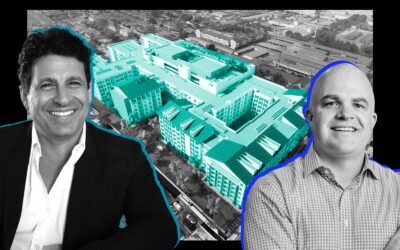
Zoe Hughes is the CEO of NAREIM, the industry association dedicated to the business and organizational strategy of real estate investment managers. Founded nearly 30 years ago, NAREIM addresses the operations and strategic leadership of commercial real estate investment management companies. NAREIM’s members, with combined assets under management of more than $1 trillion, are among the industry’s most active investors
Q: ESG (Environmental, Social and Governance) increasingly has become as important as the financial factors in the investment decision making process. 2020, Covid-19 and heightened institutional investor, employee and corporation attention on racial, gender and societal inequalities has prioritized the Social for real estate firms. But what is Social?
A: There is no standard or widely accepted definition of the components of Social. In reality, it is a company’s strengths and weaknesses in dealing with social trends, demographics and politics. And in 2020, it was the leading ESG factor for institutional investors, not just in the US, but globally. But it’s not just institutional investors who are asking questions and looking for progress on Social issues. So too are employees, across seniority levels. 2020 was a moment in time that placed the Social at the heart of business strategy. It is now a marker of the future sustainability of a company not only in attracting and retaining capital and customers, but in attracting and retaining talent.
I’m often asked what this means for the asset and the future of real estate.
At the strategic level, it means a focus on well-being – a focus on the health and wellness of users, a focus on the impact a building has on tenants and communities. After all a building is not an isolated instrument. It resides in a community, in a street, in a village, a sub-market and city filled with workers, residents, visitors and passers-by. It impacts a community through its users, the way it breathes, through its design, and through its use.
As we look to our post-Covid future, social inequities will be highlighted more and calls to action – from our tenants, from our investors and our employees – will grow. Our challenge today is how to address them.
As we look to a return to business, attention should quickly focus on the asset – and the place of belonging it can become.
As Alfie Kohn, educator and author, described: “People will typically be more enthusiastic when they feel a sense of belonging and see themselves as part of a community than they will in a workplace in which each person is left to his own devices.”
The future of real estate looks much more inclusive.

